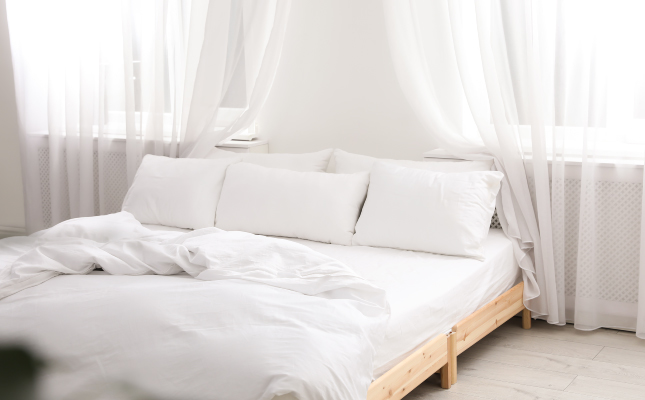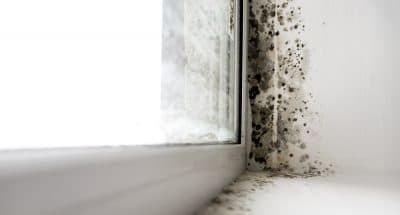
Find a local cleaner
- Inspiration /
- Lifestyle /
- Cleaning /
- How often should you...
How often should you change your sheets?
Hint - it's more often than you might think
While it’s true how often you change your bedsheets comes down to your own personal preference, experts suggest changing your sheets every week is the best way to keep your bed as hygienic as possible.
According to a recent poll, Australians change their sheets once every four weeks, increasing the risk of bacterial infections, allergies and skin irritations.

Benefits of changing your sheets regularly
When it comes to our bed sheets, our sleeping spaces harbour dead skin cells, dust mites, sweat and often bacteria, so regular cleans are essential for good health and great sleep. Not to mention, the reinvigorating feeling of falling asleep between fresh and crisp bed sheets should be enough incentive to replace our sheets.
Pillows especially pick up loads of oil and dirt from your face and hair and should be changed and washed frequently. This will help avoid pimples, rashes and other unsightly skin issues on your face and neck. A weekly clean of pillowcases and a fortnightly replacement of bed sheets is recommended to ensure your sleeping area remains clean. Air out your pillowcases, pillows and quilts regularly in the sun where possible to keep bedding sheets fresh and crisp for bedtime.
Doona’s and sheets should be washed on a hot cycle fortnightly at most. The hot wash will kill any bacteria or mites that are present.
The best way to wash bed sheets
Washing your bed sheets is relatively simple by putting them through 60degree+ hot wash with detergent to kill bacteria. Ball up your bed sheets to prevent them from losing shape.
When washing your sheets, bleaching agents can weaken the fibres of your sheets so opt for a natural remedy by adding 1/4 cup of lemon juice to the wash cycle to whiten your sheets.

How often should I clean my curtains and drapes?
Clean your curtains or drapes every month by simply running the vacuum over them. Any tough spots or stains can be treated independently based on the material. Curtains and drapes can be very heavy and delicate so avoid putting them in the washing machine if at all possible. For delicate fabrics that need a thorough clean, consider taking them to a dry cleaner to ensure they are not damaged in the cleaning process.
Why do I need to clean the curtains, drapes and bed sheets?
Curtains act as dividers between outside and inside environments, absorbing and blocking the moisture and dirt that can get in through open windows and air vents. Dirt and debris from the air can also accumulate on curtains while we vacuum and dust other areas of our home. Cleaning our curtains can refresh the smell and airspace of our homes as well as increasing the lifespan of your drapes. Dust is also a health hazard and regularly cleaning your curtains can prevent the build-up of dust and protect your family’s health.
Contact local cleaners
How should I clean my curtain drapes?
How you choose to clean your curtain drapes can depend on the material. With nylon, polyester or cotton curtains, a warm and gentle wash cycle is sufficient.
Wash lightweight curtains on a delicate cycle, while heavy drapery will retain water, making it difficult to dry and air out. Bear in mind that lighter drapes made of delicate fabrics can shrink so ensure the label of your curtain is checked before washing.
Most of the dust on your curtains settles between the hems and the folds of the curtain and vacuuming from the top down can help prevent dust build up and maintain your curtains between washes. Ensure that you always vacuum on both sides of the curtain to remove dirt and dust.

Don’t wait for stains to build up on your curtains and drapes but add a little dishwashing liquid to your damp sponge and dab away at your stains.
Preventative sprays that can repel dust. A reliable home solution:
- 1 cup of water
- 1/4 cup vinegar
- 1/4 cup of crushed lemon or lime juice for a citrus scent
Add in a spray bottle and apply to drapes for a fresh barrier against dust and dirt.
How much will your job cost?
The Oneflare Cost Guide Centre is your one-stop shop to help you set your budget; from smaller tasks to larger projects.



